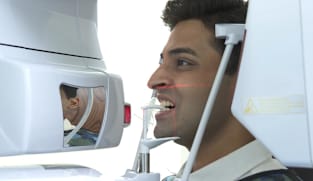Syed Harun Alhabsyi on Criminal Procedure (Miscellaneous Amendments) Bill
During the Parliamentary debate on a proposed sentencing regime that could keep serious, high-risk offenders behind bars indefinitely, NMP Syed Harun Alhabsyi asked why the applicable offences were selected and how many offenders the Bill could impact. He said if the numbers are small, other options might be considered such as community sentencing, release and detention orders or day reporting orders. This could still achieve the intended outcome of public protection and mitigate risk if employed with greater oversight and supervision, he said. On the other hand, if the numbers are sizeable, he suggested this would be “telling” of how much more must be done to conduct treatment and rehabilitation programmes, especially for this sub-group of offenders of violent crimes and sexual harms. Dr Harun said he had reservations about the Sentence for Enhanced Public Protection (SEPP) - specifically, its achievable gains and proportionality, as well as its encroachment into civil liberties, even if it is “reserved for the most heinous and predatory among us”. He wondered if there were possible alternatives within the existing structure of legal provisions that had yet to be considered. In Parliament on Monday (Feb 5), Dr Harun also spoke about a new framework for Forensic Medical Examinations. He asked why the Bill appears to allow individuals to consent on their own at a younger age than in medical settings, when doctors would typically seek parental or guardians’ consent for anyone below the age of 21.
During the Parliamentary debate on a proposed sentencing regime that could keep serious, high-risk offenders behind bars indefinitely, NMP Syed Harun Alhabsyi asked why the applicable offences were selected and how many offenders the Bill could impact. He said if the numbers are small, other options might be considered such as community sentencing, release and detention orders or day reporting orders. This could still achieve the intended outcome of public protection and mitigate risk if employed with greater oversight and supervision, he said. On the other hand, if the numbers are sizeable, he suggested this would be “telling” of how much more must be done to conduct treatment and rehabilitation programmes, especially for this sub-group of offenders of violent crimes and sexual harms. Dr Harun said he had reservations about the Sentence for Enhanced Public Protection (SEPP) - specifically, its achievable gains and proportionality, as well as its encroachment into civil liberties, even if it is “reserved for the most heinous and predatory among us”. He wondered if there were possible alternatives within the existing structure of legal provisions that had yet to be considered. In Parliament on Monday (Feb 5), Dr Harun also spoke about a new framework for Forensic Medical Examinations. He asked why the Bill appears to allow individuals to consent on their own at a younger age than in medical settings, when doctors would typically seek parental or guardians’ consent for anyone below the age of 21.



















